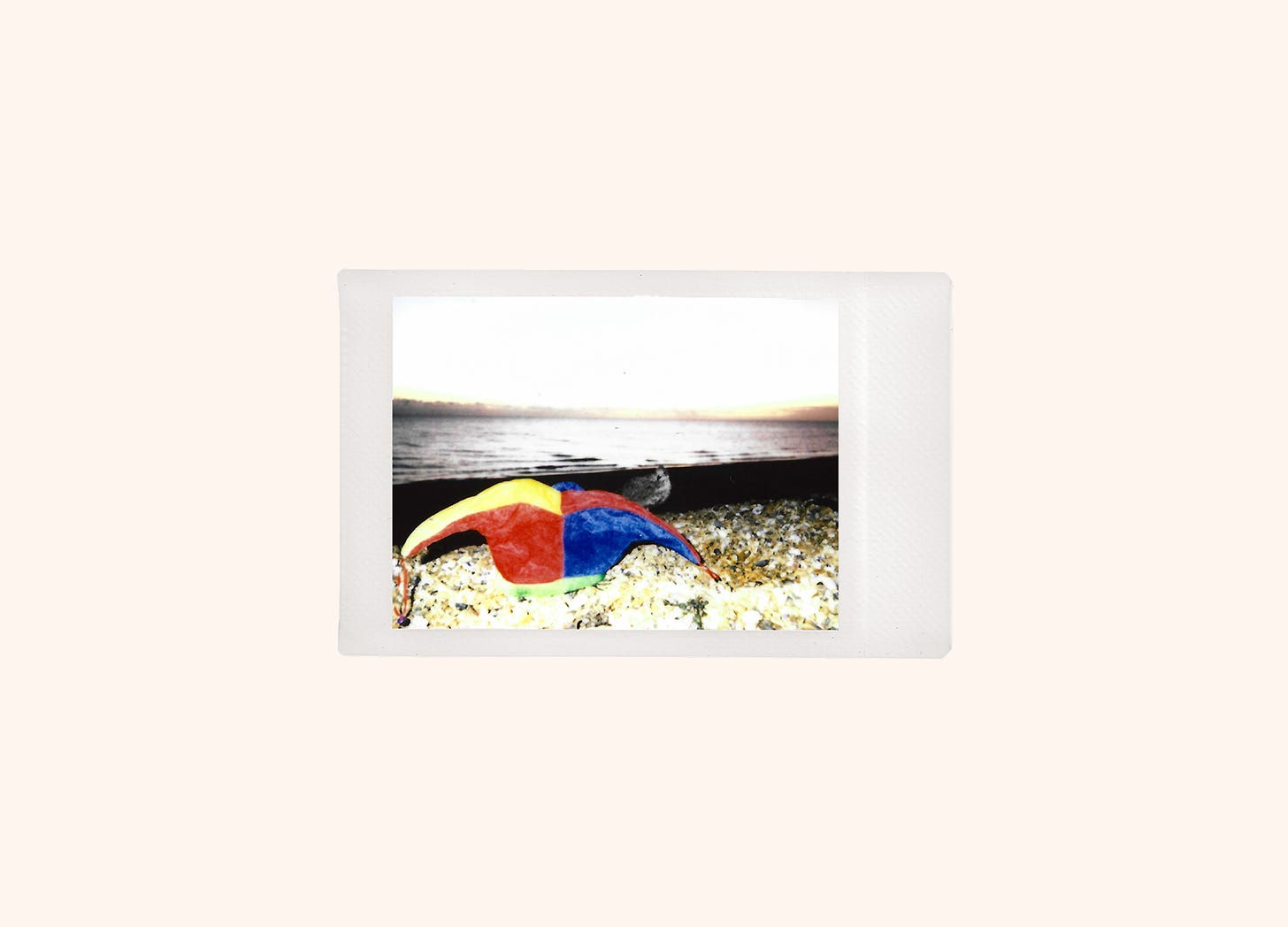the court jester's isles
'the menu', 'triangle of sadness', 'glass onion', 2022's archipelagos of satire
Three films came out in 2022 with eerily similar commentaries. The Menu, Triangle of Sadness, and Glass Onion: A Knives Out Mystery all take their fair share of jabs at the structure of capitalism. Finer than that, they all run exposés on the mythology of “the elite” – satirising the privileged few who occupy, orbit or flirt with influential power.
The Menu considers “the elite” as executioners of creativity. The businessmen who puppet the purse strings, the food reviewer who can ruin a restaurant with one scathing critique, even the washed-up movie star who has the gall to put out an uninspired film (and his well-off assistant). All of their gluttony–for relevancy, for hoarding wealth, even for their idol’s recognition–are responsible for cheapening the culinary craft of the vengeful Chef Julian Slowik (Ralph Fiennes).
Glass Onion explores a more interior life of “the elites”. We observe an interpersonal ecosystem spearheaded by the tech mogul, Miles Bron (Ed Norton). His closest friends subsist on his clout and coin to preserve their own quality of life. They’ve told themselves that they’re a family, in the same way the manager at your first job calls the workplace “a family” so he can get away with giving everybody gift cards for Christmas instead of bonuses or better pay. Parasitism masquerading as community.
Triangle of Sadness unveils the grotesqueness of “the elite”. A model-influencer couple, a Russian oligarch, the retired owner of a weapons manufacturing company, a tech billionaire and more–congregate on a luxury cruise liner. They taunt the staff and have morally bankrupt conversations amongst themselves. They contract food poisoning and projectile-evacuate their bowels from both ends. Triangle of Sadness subjects “the elite” to rising tides of embarrassment, with each wave of humiliation peeling back another layer of ineptitude and selfishness until there’s nothing but a shrivelled pip of humanity.
Curiously, all these films involve islands.
In Triangle of Sadness, the cruise-liner is ransacked by pirates and a handful of passengers become castaways. In The Menu and Glass Onion, “the elites” are invited to private islands.
Western culture has had a fascination with the fictitious island for centuries. It is on the secluded shores of “the island” that Robinsonade writers investigated the nature of humanity. R. M. Ballantyne’s The Coral Island: A Tale of the Pacific Ocean (1857) strands three boys in the South Pacific and they proceed to valiantly civilise the native population. Heroes to themselves but tyrants to the indigenous.
William Golding’s Lord of the Flies (1954) purports that, if there are no savages to civilise, shipwrecked boys will become tyrants amongst themselves. Golding’s work argues with Ballantyne’s. Where Ballantyne romanticises the imperial motivation to “conquer evil”, Golding contemplates the nature of the “evil within”. Whiteness renders them far more similar than different. Both works presume the behaviours of white boyhood are universal experiences. Both assume that, away from the watchful eye of “civil society”, it is inevitable for people to commit tyrannical acts of violence. Ballantyne is simply more jovial about it.
“The island” – this floating carcass of infinite opportunities inseparable from colonial appetites; where if you’re wealthy enough, you can buy one and if you’re brutal enough, you can conquer one – is a sociological stabiliser.
None of the films’ meditations on “the elite'' work without “the island” because “the elites” must be removed from the structural protection of “civil society” for the stories to push forward. The kyriarchy of the mainland must be inaccessible and left back home.
“Kyriarchy is best theorized as a complex pyramidal system of intersecting multiplicative social structures of superordination and subordination, of ruling and oppression.”
– Elisabeth Schussler Fiorenza in her 2001 book, Wisdom Ways: Introducing Feminist Biblical Interpretation.
“The elites” of Triangle of Sadness are rendered incapable by the island. Abigail (Dolly De Leon), a Filipina “toilet manager” from the cruise-liner, finds herself at an advantage. Her survival skills command great value and allow her to seize power from those who would uphold the status quo. It’s not long before she descends into tyranny, forcing “the elites” to obey her and soliciting the male model Carl (Harris Dickinson) for sexual comfort. Is she speaking the language or stooping to their level? Is this revenge or pre-emptive self preservation? Either way, “the island” grants Abigail affluence and she immediately decides to invert the kyriarchal norms; going as far as contemplating murder to preserve her authority on “the island”.
If we consider kyriarchy as a soup; its oppressive components—antiBlackness, capitalism, patriarchy, ableism, etc—aren’t things we do as much as mixed ingredients we bathe in, ingest and regurgitate every day. Stranded away from the container of “civil society”, we carry those ingredients with us. Abigail cultivates her own soup; she is a working class labourer using the master’s tools to erect her own house. Any schadenfreude we get from witnessing the comeuppance of the vulgar elite class is morally complicated by Abigail’s equally vulgar subjugation of them.
In The Menu, Chef Slowik is a world renowned, white male chef who pioneers an elusive restaurant from a private island.
He is not an outside disruptor like Abigail. His status in “civil society” is enough that he can assemble “the elite” on the island. Here, the comeuppance of “the elites” is morally complicated by the fact that Chef Slowik is a societally powerful man who, if he put his mind to it, could use his resources to enact “revenge” through less brutally murderous and more bureaucratic channels. The Menu’s true outside disruptor, Margot (Anya Taylor-Joy), doesn’t even try to wrest control of the island. She’s only concerned with abandoning the doomed “elite” and escaping back to the more comforting lunacy of “civil society”.
The only thing that truly separates Slowik from “the elites” is the tortuous violence he visits upon them. Maybe that’s why Slowik’s ambition to kill them—in the name of craft, or revenge, or excellence, or self-fulfilment—includes a resigned demise of himself and all of his colleagues. Perhaps he recognises that his collaboration with the island isn’t an inversion of the kyriarchal paradigm but simply a microcosm of it.
In their own ways, Triangle of Sadness and The Menu continue along the same fault lines of the Robinsonade writers. They assert that—when removed from the consequences of civil society—tyrants will careen to the top, subjugation will be inevitable and violence will ensue.
Glass Onion deviates a little. Not radically so, but enough to be refreshing. The film’s climax hinges on an act of destruction whish isn’t violently vengeful like Chef Slowik’s or sexually exploitative like Abigail’s. The outside disruption appears in Helen Brand’s (Janelle Monáe) destructiveness—and it isn’t about escaping the crucible or inverting the kyriarchal soup—it’s about smashing the bowl. She destroys things. Her anger isn’t oppressive or murderous; she doesn’t unleash it on any particular person–even though her collaboration with “the island” could grant her the freedom to. Instead, she destroys in the Black tradition of resistance—rioting as “the language of the unheard”, property damage to pressurise change. Her destruction leads to the implosion of Miles Bron’s life and the collapse of this community of elite’s entire ecosystem.
“The elite” of these films personify a sociological imbalance within Western society that has become too flagrant to ignore—a disparity of “privilege”. The average citizen’s cost of living is rising whilst energy companies report record profits. Governments that have mismanaged a global health crisis are still in power. After nearly three years of platitudes in the name of racial justice, another horrifying instance of police brutality surfaces. The Menu, Triangle of Sadness, and Glass Onion each provide their own insufferable clique who’s dire fate we can revel in.
The elephant in the room, of course, is that these films attempt to demythologise “the elite” as if they aren’t developments of Hollywood—an industry that is famed for its elitism. None of these films are small, guerilla productions. The Menu has a star-studded cast. Triangle of Sadness is Oscar-nominated. Glass Onion is one of Netflix’s most expensive endeavours to date. Knowing this, it’s difficult not to see their anti-elitist leanings as part of a pre-approved set.
Yes, they’re scathing—but in the same way a 16th century court jester is scathing towards his king; if he’s entertaining enough then he keeps his job to joke another day. The King can be mocked but his majesty is never truly under threat. The jester can do the mocking but if he goes too far, he’d lose his head.
The Menu, Triangle of Sadness, and Glass Onion—a cinematic archipelago—are perhaps a perfect exhibition of satire’s limitations. They shine their lighthouses on the sociological ills that we all suffer from and/or under. They fantasise “the island” as akin to death, a great equaliser, but they only fantasise its balancing properties so far, unable to dream thoroughly enough to escape the carcerality of their own commentary.
The “black comedy” of Triangle of Sadness and The Menu, satirise with their tongue in their cheek, lavishing in their Goldingesque philosophy where they pish-posh at the inherent depravity of humanity—because in the words of Ursula Le Guin, “only pain is intellectual, only evil interesting.”
They struggle to say anything beyond the luxury cynicism that is so specific to modern western culture and its hyper-destructive history. They squander the infinite, imaginative potential that “the island” can offer in its radical seclusion, its lack of obligation to the enforced mythologies of civil society and elitism, its endless promise of freedom; in favour of allegorising the fucked-up conditions that we’re all currently experiencing and we’re supposed to watch, nod and stroke our chin with a half-smile, whispering: ah, so true. That’s really how it is.
But what of what could be?
Glass Onion stumbles into a more subversive and optimistic conclusion, one where the outside disruptor of “the elite” colludes with the seclusive properties of the island to topple a kyriarchal microcosm without descending into tyrannical rule or forfeiting her morality in the process.
What lies further than that still?
What lies beyond jabs at the king in his court? What sort of visions will urge us into unbelieving in the king altogether? Are they even possible to render on screen? Would we still need to rely on the petri dish of “the island” to imagine them?




Honestly, I love how original and fresh you are with the topics you choose to talk about. Great piece as always!
Finally watched Triangle of Sadness and I really enjoyed it! I found the debate about socialism/communism vs. capitalism a bit.... well, I'll keep those thoughts to myself for now, lol... But overall, well done film.